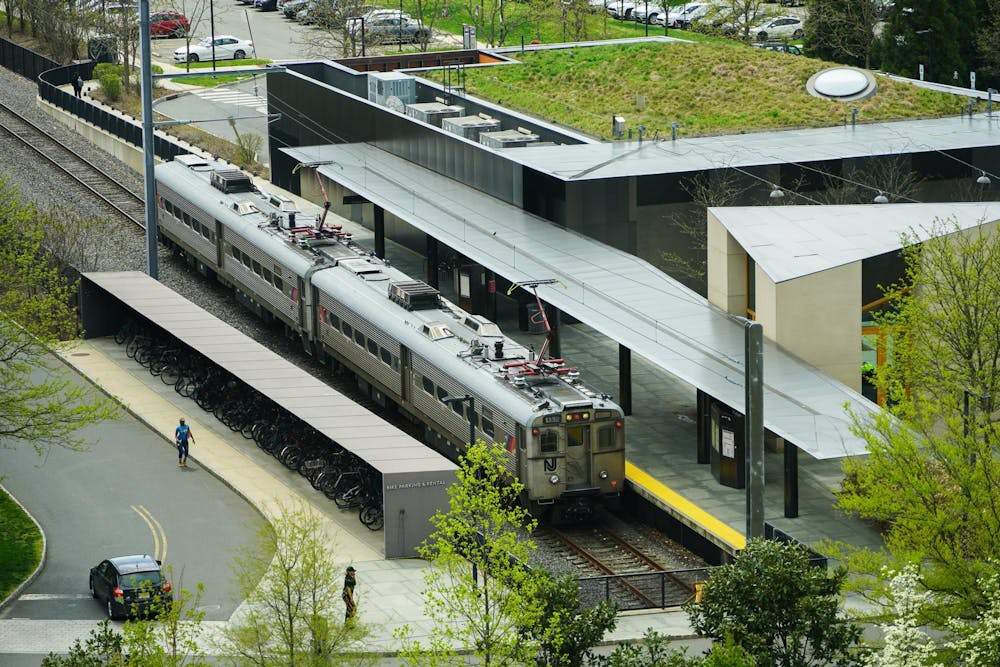New Jersey Gov. Phil Murphy announced a “fare holiday” for NJ Transit rail riders from Aug. 26 through Sept. 2. The decision to offer customers a week of free train fares follows a bout of service disruptions throughout the spring and summer in addition to a 15 percent fare increase that went into effect on July 1.
The fare holiday will fall during move-in for returning students, which begins on Aug. 31. Students who arrive from New York, Newark Airport, or Trenton will not have to pay train fares for their travel along the Northeast Corridor and Dinky.
In a statement made on Aug. 15, Gov. Murphy said the gesture aimed to thank customers for their continued “loyalty and patronage” in the face of extensive delays and shutdowns.
Despite the fare relief, some riders worry that the broader issues of increased fares and historically unreliable service remain unaddressed.
“I think it’s a great thing. I think giving more people access to public transit is great,” Dash Pai ’26 told The Daily Princetonian. “I also don’t know if this one-time cutting of fares is going to do much in the long run.”
Pai has used NJ Transit multiple times when moving to and from campus. He also used it often while he worked on campus this summer, experiencing the spike in delays himself.
“One time I was visiting my friends in the city, and I was planning on getting on the 9:30 pm or 10:00 pm train back to Princeton … and it ended up getting delayed for an hour and a half.”
Matthew Zhang ’26 appreciates that the initiative will “help out college students by offering free rides” because “the ride from Newark [Airport] to Princeton can be pretty expensive for a lot of people,” but agrees that the fare holiday “kind of is a band-aid.”
Disruptions resulting from the railroad’s aging fleet and overhead wiring system are more frequent during summer and winter months. Extreme temperatures cause the electrical wires to sag or snap, which can get caught on train cars and result in power outages. These problems have existed for so long that seasoned riders plan around their failure, which often adds hours to daily commutes during rush hours.
This summer, NJ Transit reported an on-time performance (OTP) of 83.2 percent for June, which was their lowest OTP since November 2018. OTP peaked this year in March at 93.3 percent, which remains below their goal OTP of 94.7 percent.
June also saw 656 train cancellations, which was the highest number of cancellations since August 2020. 416 of those cancellations resulted from issues related to Amtrak “equipment, signal, or catenary (overhead electrical wire) failure, track conditions, debris, or planned maintenance.”
Since NJ Transit and Amtrak trains share the section of Amtrak’s Northeast Corridor that runs between New York City and Trenton, officials from both corporations have opened an investigation into the root causes of this summer’s increased delays. The investigations by both organizations were inconclusive.

Despite the shortcomings of NJ Transit service, Gov. Murphy said in his statement that “significant short-term actions” have been taken by NJ Transit and Amtrak to improve service, including “increased equipment inspections on platforms,” which he said led to “a noticeable decrease in infrastructure-related incidents.”
Megan Cameron is a News contributor for the ‘Prince.’
Please send any corrections to corrections[at]dailyprincetonian.com.








